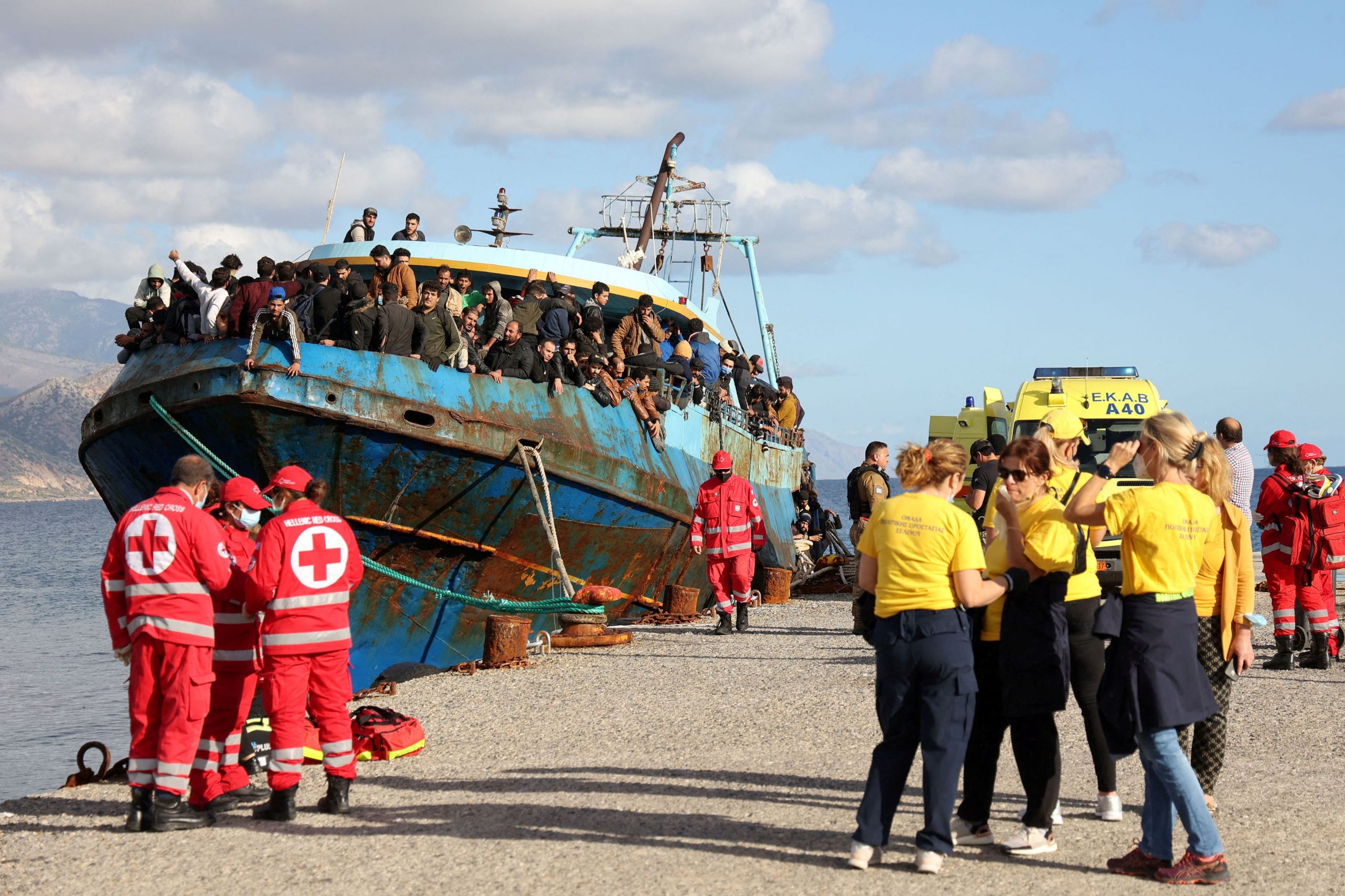The revenue from human smuggling is estimated at more than six billion euros per year globally, while more than 280,000 migrants had entered the EU irregularly by the end of September 2023, a year-on-year increase of around 20 percent.
Attempting to take another step toward a comprehensive and coherent immigration policy, the European Commission will present a proposal next week for combating and preventing the smugglers, as its term of office nears its end and the 2024 European elections draw near.
According to To Vima sources, the Commission is aiming to take on smugglers by modernizing the legal framework to ensure that investigations are conducted efficiently and that penalties enforced against organized criminal networks. It also seeks to harmonize sentencing, which will range from three to 15 years, depending on the circumstances. A key element of the proposal will be making more resources available to Member States, so they have the capacity to fight smuggling networks with specialized personnel. At the same time, provision will be made for penalties to be imposed, even if migrants run into trouble in international territorial waters rather than in a Member State. Improved data and information collection will also have an important role to play.
The European Commission President focused on the need to fight smuggling networks in her State of the Union speech in September 2022, stressing that “it is time to put an end to this callous and criminal business.” She also noted that the existing legal framework was 20 years old and needed to be brought up to date in her letter to the leaders of the 27 Member States.
The EU Talent Pool proposed by the Commission two weeks ago will operate on a voluntary basis and provide another tool in the fight against irregular immigration by bringing third-country nationals into the EU to fill vacancies within the bloc. It will allow employers to select workers who meet the requirements for the jobs they are offering, and will fast-track the procedures for recognizing and validating diplomas, degrees and competences acquired in third countries.
At the same time, consultations continue unabated to conclude the Pact for Migration and Asylum before the European elections. However, it is a cause for concern that Belgium’s turn at the head of the Council of the European Union in the first half of 2024 will be followed by the Hungarian presidency, given that neither Hungary nor Poland ever pass up an opportunity to create problems, especially on major issues like migration. Of course, it is significant that the new proposal will not require unanimity and can pass with a qualified majority. As expected, the results in the Dutch elections are also sending shock waves through the bloc, with the “maestro” of anti-immigration policy, Geert Wilders, now calling the shots in the Netherlands.
Still, whatever happens, the front-line states are expecting action, not a repetition of the events of 2015 or further instances of migrants being weaponized, as they were by Turkey in 2020 leading to the crisis at Greece’s borders, and as Russia seems to have done recently in Finland in an attempt at further destabilization.



